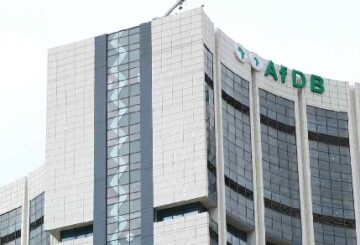 Experts in the maritime sector have expressed mixed reactions on the Federal Government’s decision to suspend the National Seafarers Development Programme.
Experts in the maritime sector have expressed mixed reactions on the Federal Government’s decision to suspend the National Seafarers Development Programme.
The NSDP, an initiative of the Nigerian Maritime Administration and Safety Agency, is a platform for training cadets in maritime institutions abroad, to equip them with the necessary skills and certification that would aid them in getting employment on board sea-going and foreign vessels.
The Director-General of NIMASA, Dr Dakuku Peterside, disclosed that about 2,500 cadets had benefitted from the programme which cost the Federal Government N20bn.
The programme was initiated in 2009 and the initial funding was jointly executed by the state government and NIMASA on a 60 to 40 per cent basis, but NIMASA later assumed a 100 per cent responsibility of the training as part of its contribution to the development of the sector.
The cadets were trained in maritime and transport institutions in the United Kingdom and Egypt.
However, speaking at the Maritime Academy of Nigeria, Oron recently, a former Minister of Transportation, Mr Rotimi Amaechi, said he had refused to approve the training of cadets outside Nigeria because it contributed to the “stunted growth” recorded by the maritime academy at Oron in recent years.
He said, “Nigeria should have the same type of institutions we are sending our people to abroad, if we stop people from being trained overseas, they will ensure that MAN, Oron is improved upon,’’ he said.
Speaking in support of the decision, the President, Nigerian Association of Master Mariners, Captain Tajudeen Alao, suggested that the money used in training cadets should be channelled into upgrading the existing maritime academy in the country.
He recommended training of officers who already had certificate and were already sailing but who had no money for further training.
“The cadets are usually without placement after the training. I suggest they train senior officers who already have certificates because there are many jobs that they are not equipped to do,” he said.
In the same vein, a business and investment consultant, Dr Vincent Nwani, acknowldeged that the training done so far had not translated to employment opportunities for the trainees.
“Some of them come back and there are no jobs. How many ships are coming to Nigeria? The ports of Republic of Benin and Ghana are preferable destinations to vessels.
“So, if you spend money training 1,000 people, chances are that there will be no jobs for them.”
However, a former DG of NIMASA, Mr Temisan Omatseye, advised the government to ensure that the MAN, Oron is upgraded to a certificate- awarding institute by the International Maritime Organisation, so that certificates issued by the institute could be recognised outside Nigeria.
He said NIMASA had at one time suggested training lecturers in Nigerian universities in maritime institutions under the “train the trainers” project.
With that, he argued, lecturers would be equipped to take maritime courses in Nigerian universities, adding that only theories were being taught in Nigerian universities.


